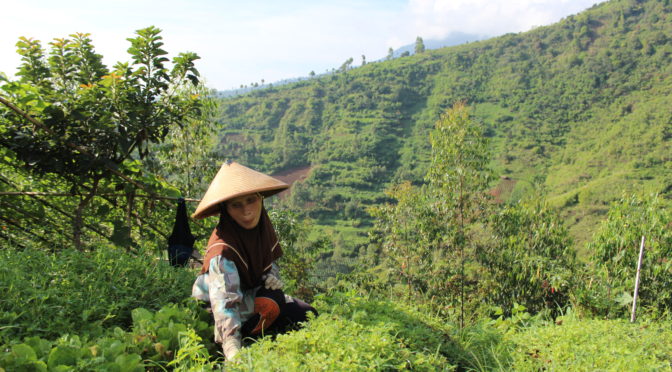The year’s 1970. Concorde makes its first supersonic flight, The Beatles break up, and the US/Russia space race is in full flow. Industry is at its peak and travel has never been so easy. It seemed that Earth was quickly morphing into one, massive exhaust pipe. Yet in amongst the smog there was a glimmer of hope; 1970 also celebrated the first Earth Day. Set against the unlikely backdrop of technological innovation and industry development, the 1970 Earth Day marked a turning point in our attitude to the changing environment. With Rachel Carson’s Silent Spring published in 1962, the “tree-hugging” sentiments of 60s hippies and, the nail in the coffin, the 1969 Santa Barbara oil spill, our impact on Earth was becoming increasingly difficult to ignore. Now known to be the third largest oil spill in the world, it was this catastrophic event that truly set Earth Day’s wheels in motion.
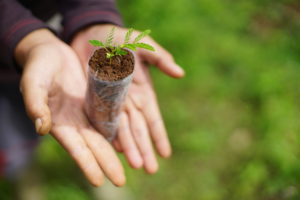
Fast forward 50 years; the year’s 2020 and Earth Day is going digital. As of early April, 3.9 billion people had either been asked or ordered to stay at home, quite possibly the easiest way to put a population’s already tenuous connection to the outdoor environment to the test. But we adapt, and in true 21st century fashion, we move online. The first socially-distant Earth Day might seem redundant, but squint and you’ll see that we have the virtual upper-hand. With the help of the infinite power of social media, Earth Day 2020 knows no bounds. Climate change, plastic pollution, citizen science; it’s the world’s drop-down list from heaven.
Here in Indonesia, LFP is situated in an agroforest environment, meaning that small-holder agriculture is integrated into natural forest. Because of this close contact between humans and the natural environment, many of the issues Earth Day wants to bring to the forefront of the discussion come part-and-parcel with life here in Cipaganti. This is where LFP and the wonderful residents of this special village come in.
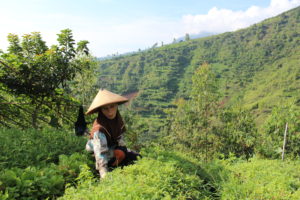
Plastic pollution, the bane of all of our lives. Can’t live with it, can’t live without it. Alongside holding the first Earth Day, the early 70s are also widely considered to be the first time that large-scale plastic pollution was reported. Lacking the infrastructure to properly manage waste, people all over the world have little choice but to create makeshift landfills as a short-term fix for the increasing amount of inorganic waste we produce. But the plastic tide is turning. In collaboration with farmers, residents and local government officials, we are in the process of implementing the infrastructure necessary to start recycling plastic waste. C. V. Plastindo are a recycling plant in the nearby city of Garut who take inorganic waste from villages all over the district and recycle it to produce biofuel. In addition, we are teaching kids about the harmful effects of litter through the beauty of the three R’s – Reduce, Reuse, Recycle – and we are helping to clean up the environment by collecting whenever and wherever possible. You better believe that a global pandemic is not going to stop us from going outside and picking some litter (keeping socially distant, of course).
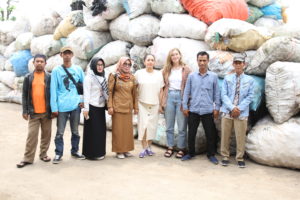
Next up, let’s take a closer look at Earth Day’s Canopy Project. The aim is simple, to plant trees, a lot of them at that. In honour of the 50th anniversary of Earth Day, they are wanting to plant 7.8 billion trees, one tree for every person on Earth. Trees are essential for filtering air, but not only that, they are necessary if wildlife is to persist in amongst farmland. Since 2016, LFP have been handing out trees to local farmers so they can integrate them into their farmland. By giving wildlife the ability to move through their farms, they are reaping the benefits of the ecosystem services they provide, producing higher quality crops and safeguarding the stability of their soil. We might not be in the billions, but we’ve certainly planted enough trees for every resident in Cipaganti. That counts, right?
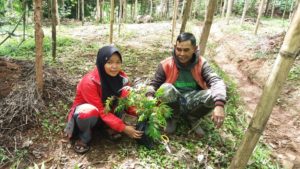
In 1970, a jumbo jet shot into the sky, marking the first flight of any Boeing-747 and leaving behind the faint imprint of our carbon footprint to come. We were flying into the unknown, it was almost understandable then. But as The Waterboys so aptly put it, “you know how it feels to reach too high, too far, too soon”. We are running out of excuses to not care and running out of time to act. Be mindful of your actions, the Earth will thank you one thousand times over.


